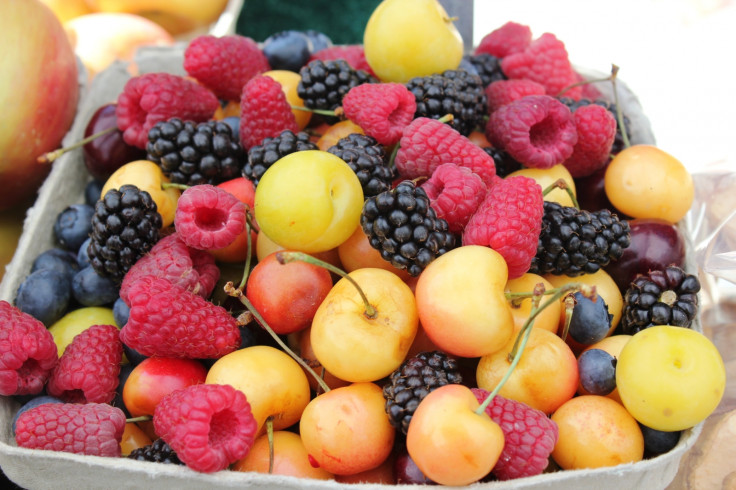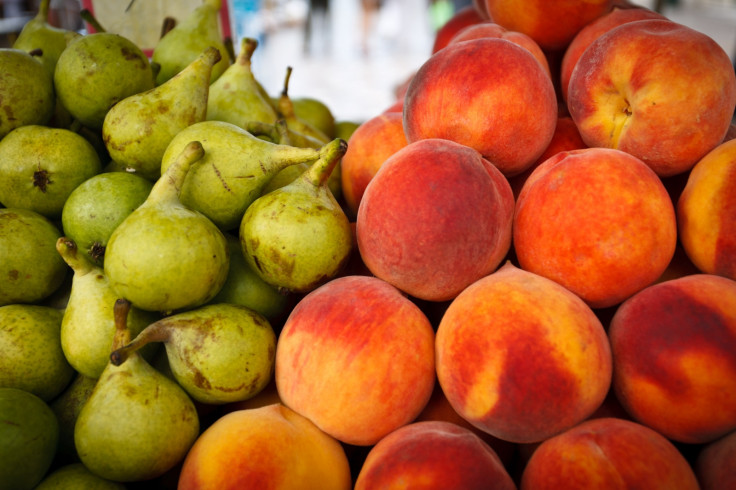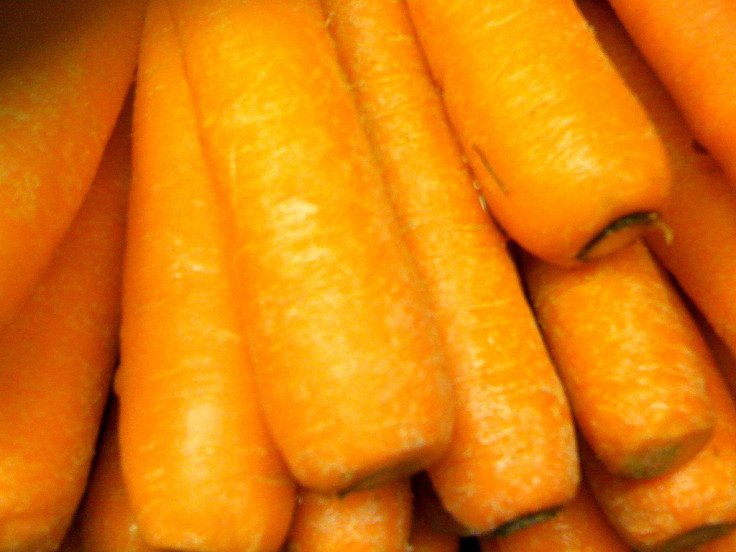Fruitarianism: Could the controversial raw vegan diet be endangering health?
In line with a trend of 'clean eating', individuals are turning to more extreme diets.

Chris, a 21 years old student, eats between eight and 10 mangoes and papayas for his breakfast, a dozen bananas in the afternoon, and he usually fixes himself a salad for dinner.
When asked about this strange diet, Chris says he has adopted a "raw vegan" lifestyle, a subset of veganism which has enjoyed growing popularity in recent years. However, his is a particularly strict kind of raw vegan diet – it could in fact better be described as a fruitarian diet, as most of his calories come from fruits.
"I could be called a 'fruitarian' even though I also eat greens and salad. I started by being vegetarian when I was 18, but this only lasted for a few months. I went straight to being a vegan and then a raw vegan. I have kept going for the past year and a half, as it is the diet that has made me feel most healthy and energised", he told IBTimes UK.
Raw vegans and fruitarians
The "clean eating" is gaining momentum and as a result, diets like raw veganism and fruitarianism have become hot topics in the media – and more mainstream in the eyes of the public. But what does it mean to be a "raw vegan" and at what point can you be considered a "fruitarian" ?

A research commissioned by the UK Vegan Society found that there were approximately half a million vegans in the country in 2016 – more than three times the amount than 10 years ago. Though it is difficult to estimate the exact proportion, some of these individuals describe themselves as "raw vegans" and a smaller number as fruitarians.
Raw vegan diets are entirely plant-based with the food eaten raw or cooked below 48C. Fruitarianism is a more extreme form of raw veganism, but the definition of what exactly it entails can vary from one individual to another. Fruitarians are sometimes defined as people who get more than 90% of their daily calories from fruits. However, one of the best known fruitarian diet, the 80/10/10 diet, advocates getting 80% of daily calories from carbs, from raw fruits in particular— and then 10% each from raw, plant-based proteins and fat.
Fruitarian's health argument
"On top of my ethical concerns, I chose this diet also for health reasons as I was having stomach pains from eating meat and dairy. Now, I have a lot more energy and I am always running and cycling, when before I could never be bothered", Chris explains.
Like him, many fruitarians who publicly advertise the benefits of their diet argue they have never felt healthier. This is not entirely surprising, as switching to a diet full of fruits and vegetables can lead to immediate improvements to the health – especially if people's previous diet was not very balanced and if they end up cutting down on sugar and alcohol as well.
"The positive aspect is that these diets promote the consumption of fresh unprocessed food. It is possible that people do feel better at first, especially if they were not used to eating so much fruits and vegetables – they may start getting more vitamins, minerals and perhaps being more hydrated", Charlotte Stirling-Reed, a Registered Nutritionist, told IBTimes UK.
"However, if they follow such a diet in the long term they might start missing a lot of nutrients like vitamin D, iron, zinc, vitamin B12 and protein. Additionally, they are putting themselves at risk of developing more serious health conditions like osteoporosis or anaemia as they get older."

This is in fact the main problem of a fruitarian diet: getting the right balance of nutrients can be tricky and only eating fruits might mean consuming mostly sugar.
"People tend to follow these diets without being conscious of their overall health. You need to know how to replace the foods you are going to stop eating, you need to be very aware of all the nutrients you should be getting each day. Simply taking supplements to compensate the fact you are only eating fruits is not enough, you really have to think about your food", Stirling-Reed added.
Bottom line is, if your mind is set on a raw food diet, you have to include a variety of ingredients in it. Tanya Maher, one of the leading figure of the clean eating movement in the UK and co-founder of gourmet raw cafe Tanya's advocates for a diverse approach to raw food.
"About 90% of what I eat is plant-based and I have been on a raw diet for seven years, but I try not to limit myself. I have a varied diet, I will from time to time try fish. In my cafe, I introduce people to the healthy yet delicious food, showing them that raw vegan can be healthy and varied in taste and nutrients", she says.
To cook or not to cook
Like all raw vegans, fruitarians believe eating raw products is the healthiest way of consuming food – one that does not lose any nutrients to cooking.
"When you heat your food, you may lose some of the nutrients. For example, overboiling carrots for Sunday dinner will significantly reduce the amount of vitamins C available", Aisling Pigott, spokeswoman for the British Dietetic Association and Registered Dietitian told IBTimes UK.
"However, I would argue that cooking is a way to discover great new tastes and textures, to try different ingredients, and it is an ancestral tradition which promotes social bond between people. That is very important for the health as well".

Furthermore, specific nutrients actually become more available with cooking, as the heating process can break apart fibres and cellular walls to release nutrients that would otherwise be unavailable from the same raw food. Again, take the example of carrots: cooking them significantly increases Beta-carotene levels compared with raw carrots.
The guilt of eating
More controversial perhaps is the message that these diets can send. The condemnation of specific food groups as well as the idea that achieving a perfect figure and a healthy lifestyle can be done quickly with these diets may be dangerous.
"People want to be thin and pretty and are looking for a magic solution to all their problems. These diets are often promoted as a quick fix for all their troubles, but they are in fact hard to follow. When you demonise some types of food, this can create a lot of guilt, as people struggle to keep away from them", Pigott explains.
"A cycle of rejecting some foods, then eating them and feeling guilty about it can lead some people to develop a complicated relationship with food. In some circumstances it can lead eating disorders such as anorexia or binge eating. I often see patients with disordered eating who identify the start of their problems to the moment they started excluding certain foods from their diets".

Maher believes raw diets can be really healthy, but she agrees that individuals must learn to listen to their body, and find what suits them personally. "I really believe you have to work out why you are choosing raw food, are you doing a short detox, are you exploring? The most important thing is that people really listen to their body and enjoy diverse healthy diet that will suit their own individual needs", she says.
At a time when diets like fruitarianism look like they are here to stay, the message that may bring health benefits to the largest number may be the simplest: a balanced, diverse approach to food that includes a bit of everything – cooked and uncooked – is probably the best option in the long term.
© Copyright IBTimes 2025. All rights reserved.






















